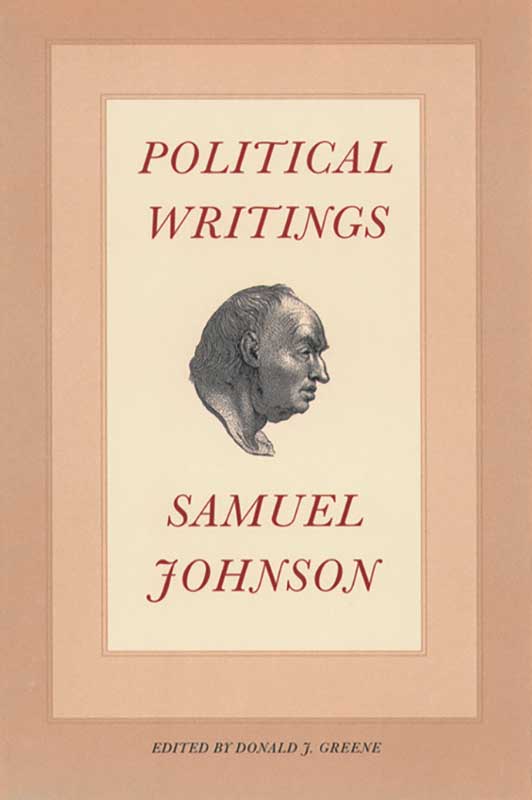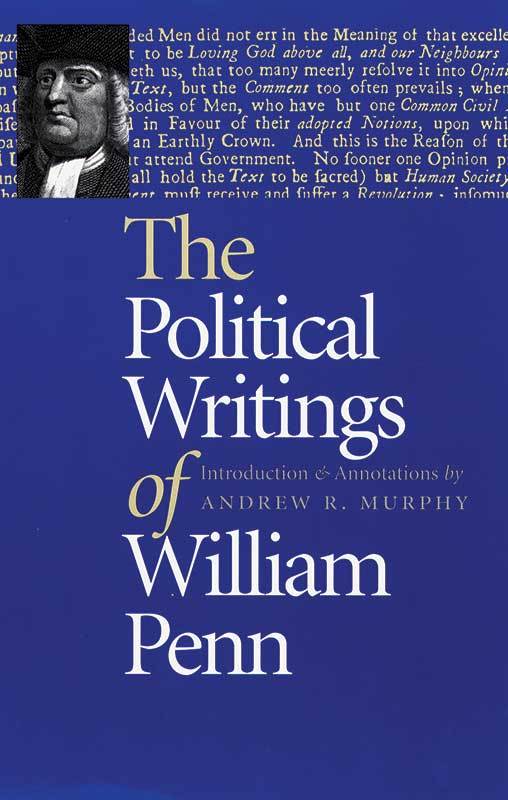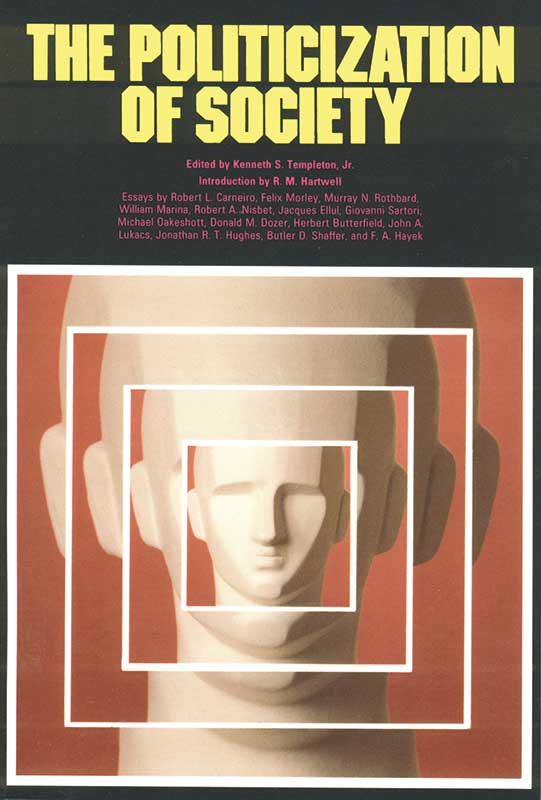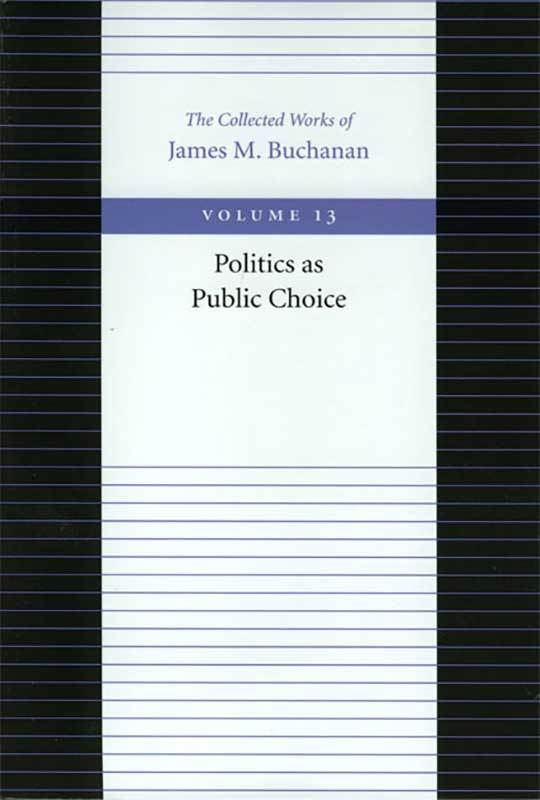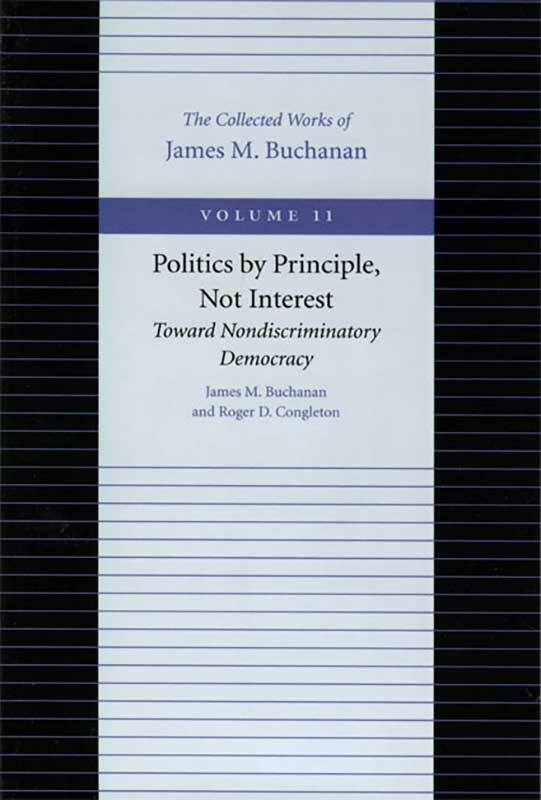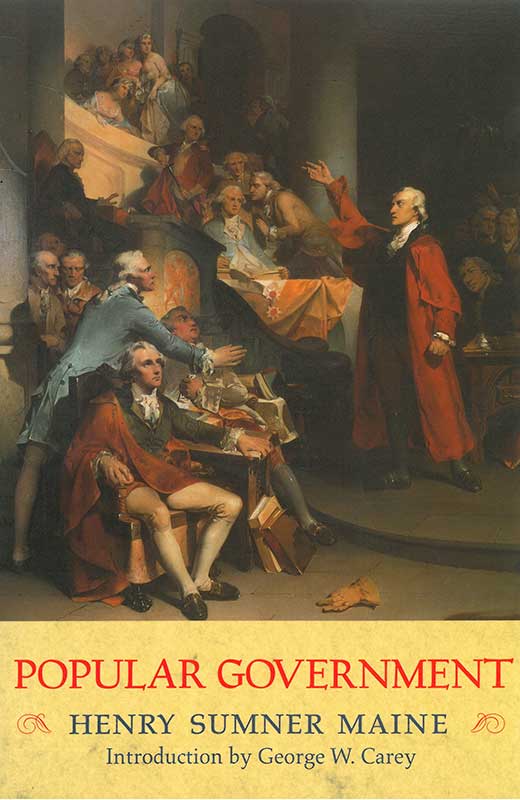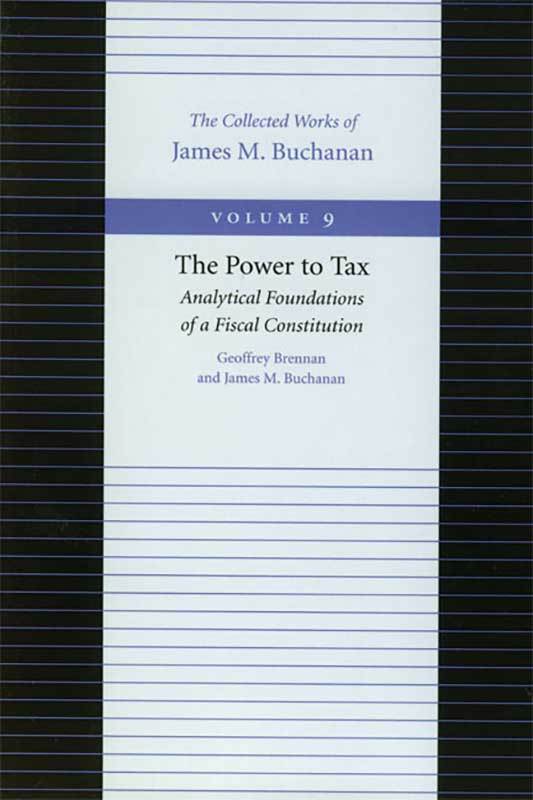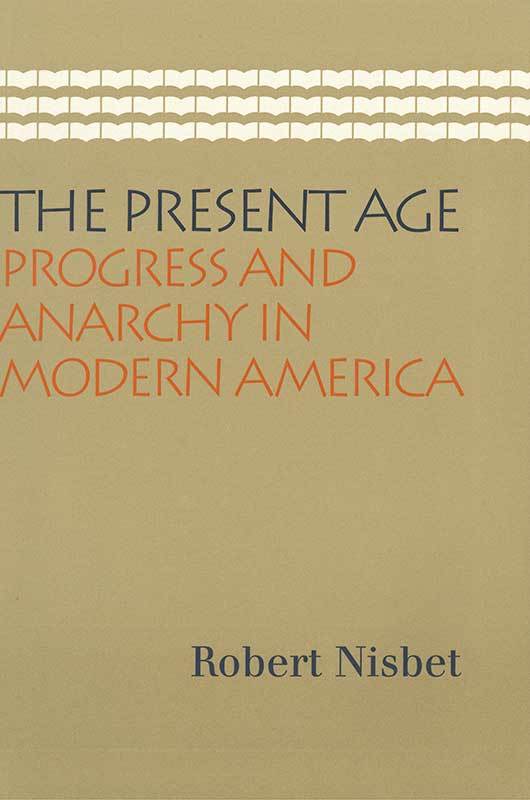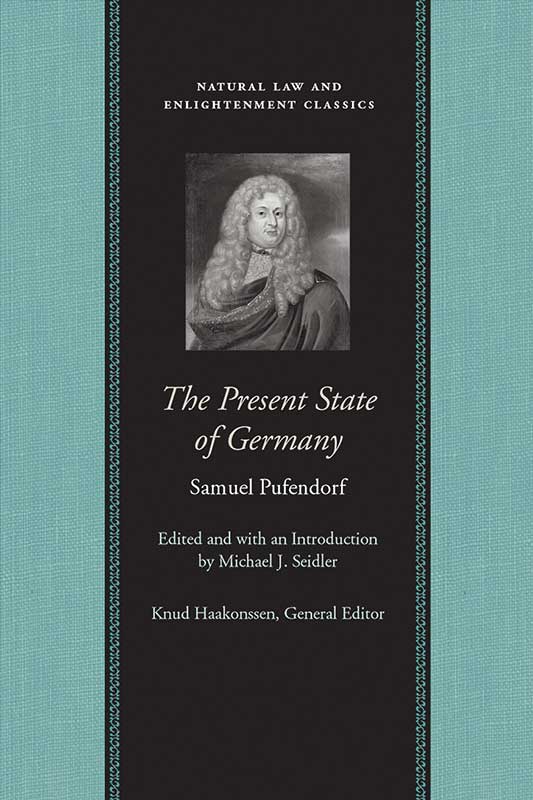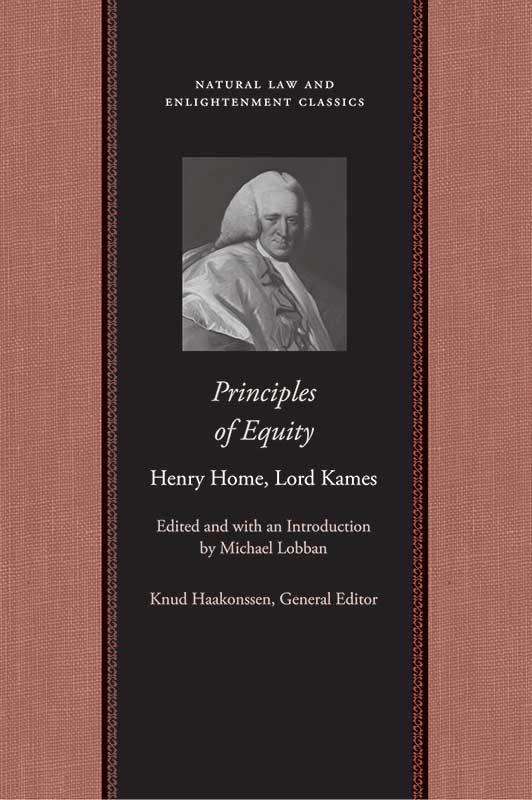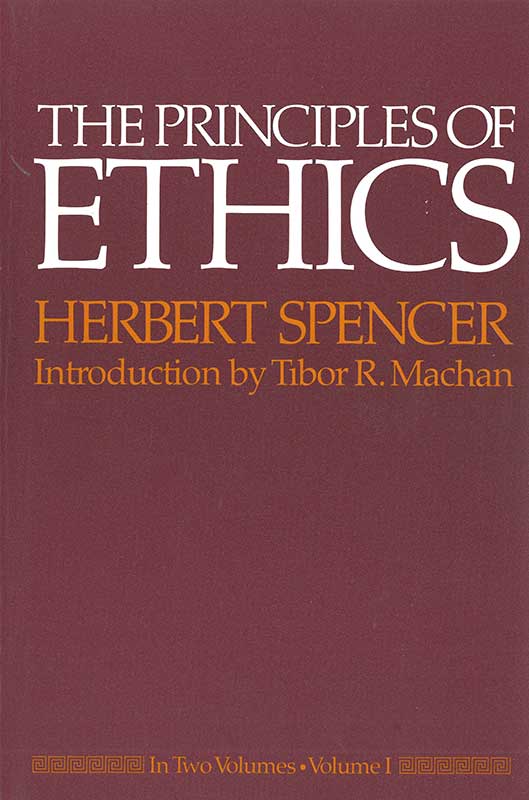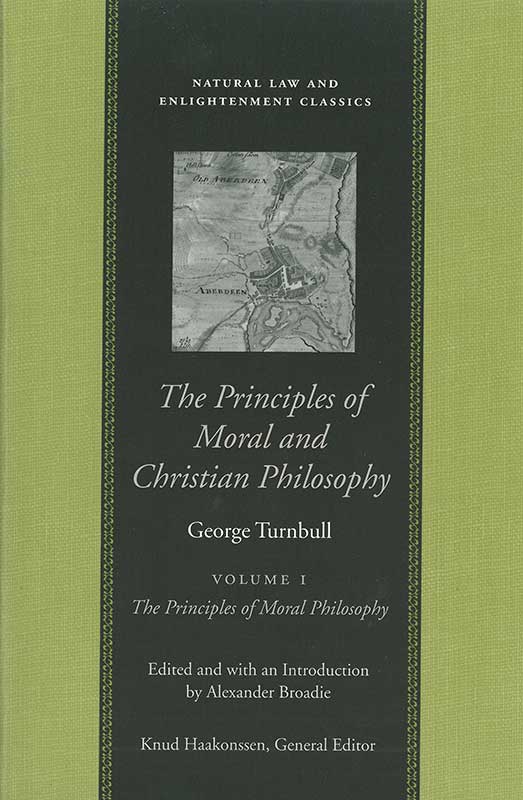Shop
-
Political Writings
by Samuel Johnson
/ Learn MoreThe eighteenth century produced a remarkable array of thinkers whose influence in the development of free societies and free institutions is incalculable. Among these thinkers were Mandeville, Hutcheson, Smith, Hume, and Burke; their time is known as the Age of Johnson. Samuel Johnson: Political Writings contains twenty-four of Johnson’s essays on the great social, economic, and political issues of his…
-
The Political Writings of William Penn
by William Penn
/ Learn MoreWilliam Penn (1644–1718) played a crucial role in the articulation of religious liberty as a philosophical and political value during the second half of the seventeenth century and as a core element of the classical liberal tradition in general. Penn was not only one of the most vocal spokesmen for liberty of conscience in Restoration England, but he also oversaw…
-
The Politicization of Society
by Kenneth S. Templeton, Jr.
/ Learn MoreFourteen essays explore the central problem of modern society—the decline of free institutions and the growth of the state. Among the essays are “State and Society,” by Felix Morley; “The Monstrosity of Government,” by John Lukacs; and “The Guaranteed Economy and Its Future,” by Jonathan R. T. Hughes.
-
Politics as Public Choice
by James M. Buchanan
/ Learn MoreThis volume presents a collection of thirty-four essays and shorter works by James M. Buchanan that represent the brilliance of his founding work on public-choice theory. The work of James M. Buchanan is perhaps most often associated with his helping to found public-choice theory. Buchanan’s book-length works such as The Calculus of Consent or The Reason of Rules (Volumes 3…
-
Politics by Principle, Not Interest
by James M. Buchanan and Roger D. Congleton
/ Learn More“Politics by principle is that which modern politics is not. What we observe is ‘politics by interest,’ whether in the form of explicitly discriminatory treatment (rewarding or punishing) of particular groupings of citizens or of some elitist-dirigiste classification of citizens into the deserving or non-deserving on the basis of a presumed superior wisdom about what is really ‘good’ for us…
-
Popular Government
by Sir Henry Sumner Maine
/ Learn MoreSir Henry Sumner Maine was one of the great intellects of the Victorian era. In Popular Government he examines the political institutions of men. He saw that popular governments, unless they are founded upon and consonant with the evolutionary development of a people, will crumble from their own excesses. George W. Carey is Professor of Government at Georgetown University and…
-
The Power to Tax
by Geoffrey Brennan and James M. Buchanan
/ Learn MoreCommenting on his collaboration with Geoffrey Brennan on The Power to Tax, James M. Buchanan says that the book is “demonstrable proof of the value of genuine research collaboration across national-cultural boundaries.” Buchanan goes on to say that “The Power to Tax is informed by a single idea—the implications of a revenue-maximizing government.” Originally published in 1980, The Power to…
-
The Present Age
by Robert Nisbet
/ Learn MoreThe Present Age challenges readers to reexamine the role of the United States in the world since World War I. Nisbet criticizes Americans for isolationism at home and discusses the gutting of educational standards, the decay of education, the presence of government in all facets of life, the diminished connection to community, and the prominence of economic arrangements driving everyday…
-
The Present State of Germany
by Samuel Pufendorf
/ Learn MoreSamuel Pufendorf’s The Present State of Germany was first published in 1667 (under the pseudonym Severinus de Monzambano) and immediately became one of the most notorious works in Europe for the next half century. Its trenchant critique of previous theories of the Holy Roman Empire elicited both attacks and defenses, and it also anticipated many elements in Pufendorf’s subsequent writings…
-
Principles of Equity
by Henry Home, Lord Kames
/ Learn MoreHenry Home, Lord Kames, was the complete “Enlightenment man,” concerned with the full spectrum of human knowledge and its social use. However, as a lawyer and, after 1752, as a judge on the Court of Session in Edinburgh, he made many of his most distinctive contributions through his works on the nature of law and legal development. Principles of Equity,…
-
The Principles of Ethics
by Herbert Spencer
/ Learn MoreThough almost forgotten today, Herbert Spencer ranks as one of the foremost individualist philosophers. His influence in the latter half of the nineteenth century was immense. Spencer’s name is usually linked with Darwin’s, for it was he who penned the phrase, “survival of the fittest.” Today in America he is most often admired for his trenchant essays in The Man…
-
The Principles of Moral and Christian Philosophy
by George Turnbull
/ Learn MoreThe Principles of Moral and Christian Philosophy presents the first masterpiece of Scottish Common Sense philosophy. This two-volume treatise is important for its wide range of insights about the nature of the human mind, the foundations of morals, and the relationship between morality and religion. The first volume presents a detailed study of the faculties of the human mind and…
35% OFF YOUR ENTIRE BOOK PURCHASE
With promo code:
FALL2025
Expires October 31, 2025

